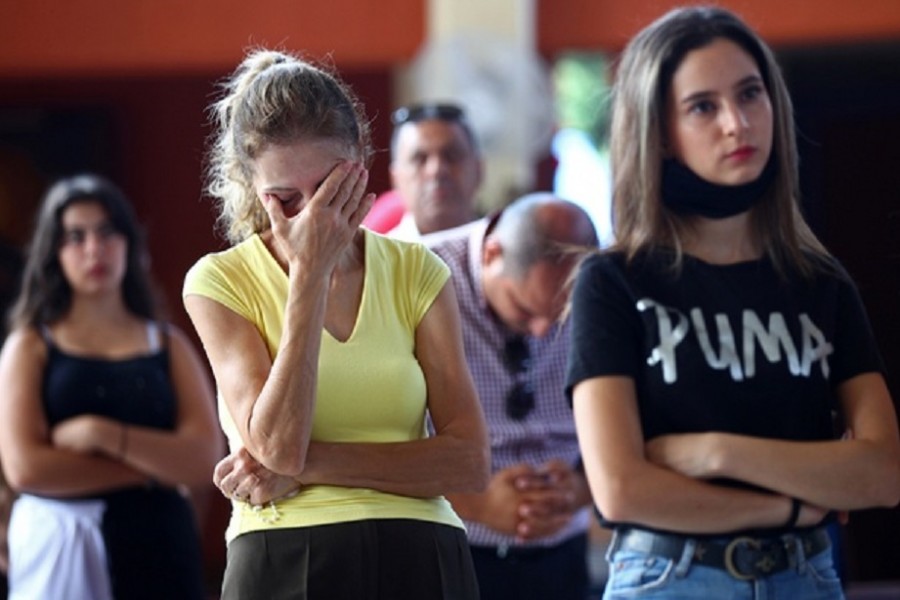Some Lebanese called on Sunday for a sustained uprising to topple their leaders amid public fury over this week's devastating explosion in Beirut, and the country's top Christian Maronite cleric said the cabinet should resign.
Protesters have called on the government to quit over what they say was negligence that led to Tuesday's explosion. Anger boiled over into violence scenes in central Beirut on Saturday.
Christian Maronite Patriarch Bechara Boutros al-Rai said the cabinet should resign if it cannot "change the way it governs".
"The resignation of an MP or a minister is not enough. The whole government should resign if it is unable to help the country recover," he said in his Sunday sermon.
Information Minister Manal Abdel Samad said she was resigning on Sunday, citing the explosion and the failure of the government to carry out reforms.
Dozens of people were injured in Saturday's protests, the biggest since October when thousands of people took to the streets in protests against corruption, bad governance and mismanagement.
About 10,000 people gathered at Martyrs' Square, which was transformed into a battle zone in the evening between police and protesters who tried to break down a barrier along a road leading to parliament. Some demonstrators stormed government ministries and the Association of Lebanese Banks.
Demonstrators defied dozens of teargas canisters fired at them and hurled stones and firecrackers at riot police, some of whom were carried away to ambulances. One policeman was killed.
The Red Cross said it had treated 117 people for injuries on the scene on Saturday while another 55 were taken to hospital.
Soldiers in vehicles mounted with machineguns were stationed beside Martyrs' Square on Sunday.
"People should sleep in the streets and demonstrate against the government until it falls," said lawyer Maya Habli, as she surveyed the demolished port where the blast erupted.
The explosion killed 158 people and injured more than 6,000, destroying parts of the city and compounding months of political and economic meltdown. Twenty-one people were still reported as missing.
The prime minister and presidency have said 2,750 tonnes of highly explosive ammonium nitrate, which is used in making fertilisers and bombs, had been stored for six years without safety measures at the port warehouse.
The government has said it will hold those responsible to account.
GUTTED NEIGHBOURHOODS
French President Emmanuel Macron was hosting U.S. President Donald Trump and other political leaders on Sunday for a U.N.-endorsed donors' conference by video to raise emergency relief for Lebanon.
The explosion hit a city reeling from the economic crisis and the coronavirus pandemic. For many, it was a dreadful reminder of the 1975-1990 civil war that tore the nation apart and destroyed swathes of Beirut, much of which has since been rebuilt.
"I worked in Kuwait for 15 years in sanitation to save money and build a gift shop in Lebanon and it was destroyed by the explosion," said Maroun Shehadi.
"Nothing will change until our leaders just leave."
The explosion gutted entire neighbourhoods.
"Look at this," said Eli Yazbak, the manager of a fashion company whose 10-story headquarters was destroyed in the blast.
"This has set us back 50 years. We face crisis after crisis in Lebanon. It's time for the government to step down and let capable people run the country."


